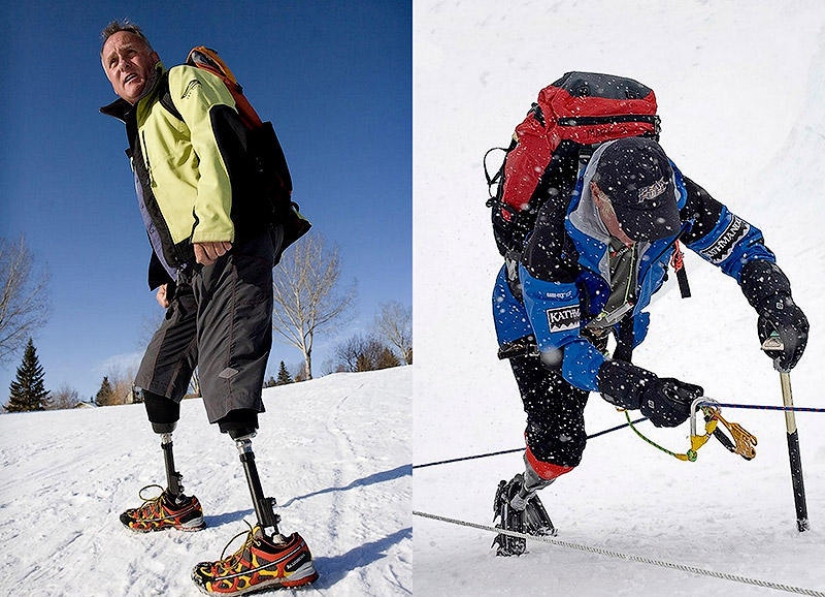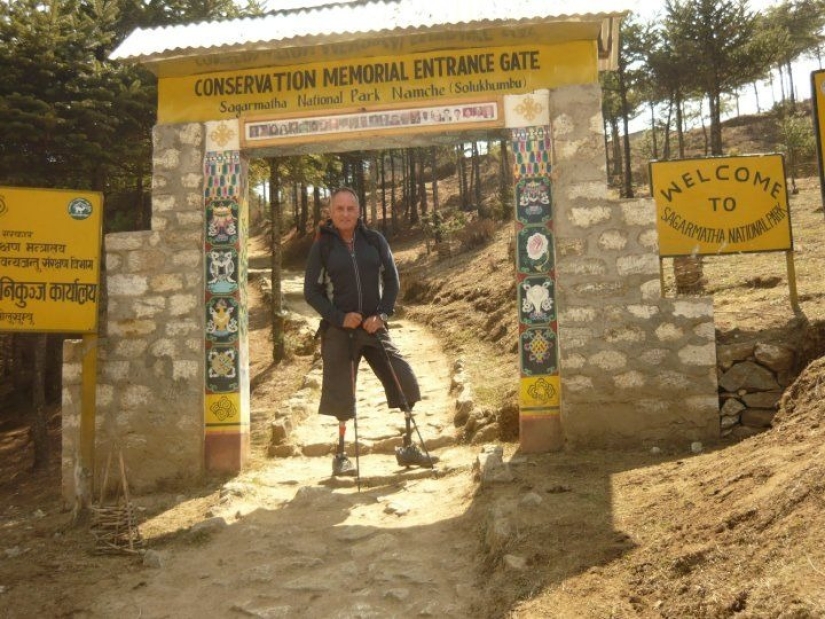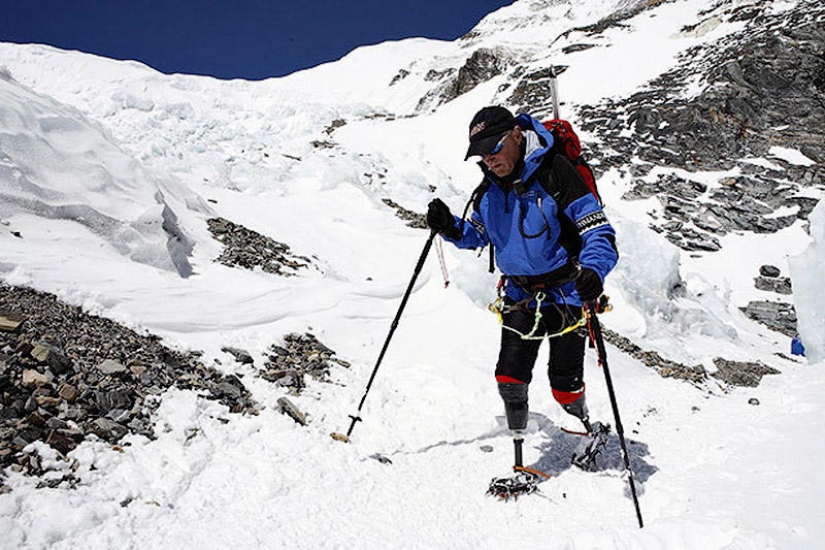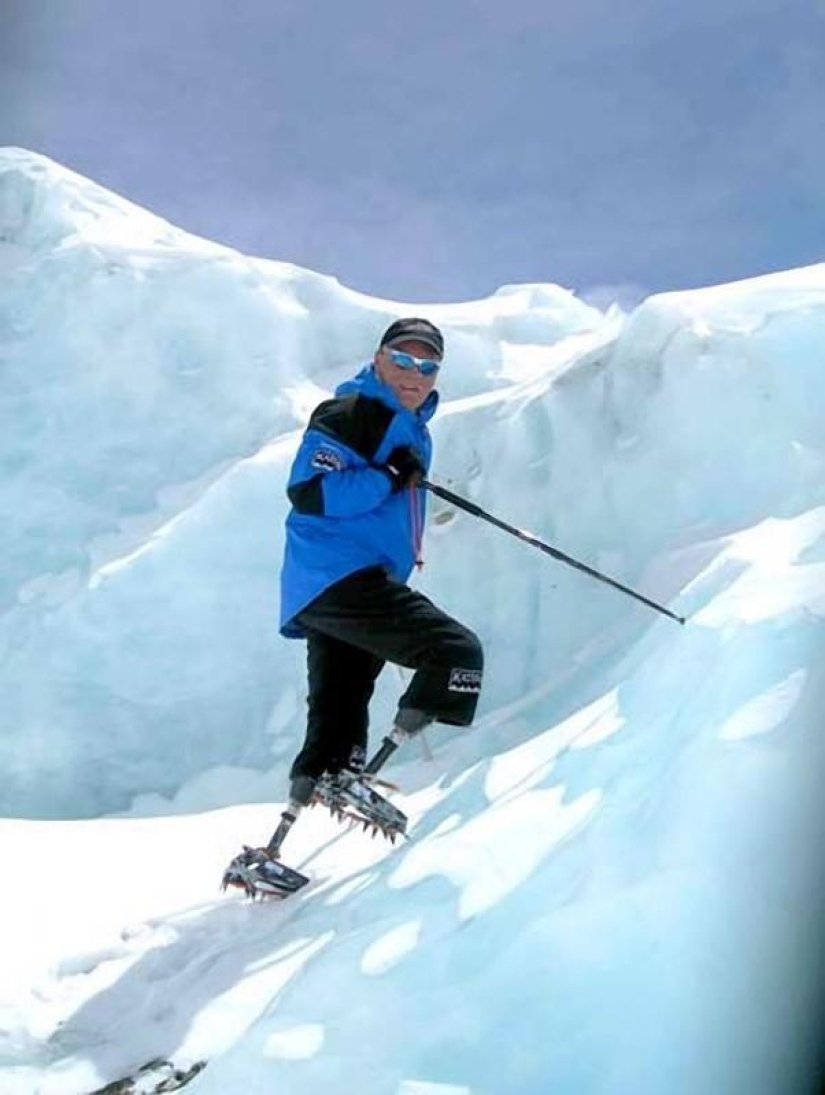Mark Inglis - the first climber to conquer Everest without legs
On December 3, the world celebrates International Day of Persons with Disabilities, a day when we are especially aware of the importance of accessibility and equal opportunity for all. On this day, I would like to recall the story of Mark Inglis, the first climber to conquer Everest without legs. This example of undoubted courage and unquenchable desire for a goal shows that the limits of human capabilities go far beyond physical limitations.

Mark Inglis, whose feat became a symbol of unbending will and courage, went down in history as the first climber without legs to conquer Everest. His story is a tale of extraordinary fortitude and the ability to overcome seemingly insurmountable obstacles.
Mark Inglis' life changed dramatically in 1982 when he was caught in a snowstorm while climbing Mount Cook in New Zealand and was forced to spend 13 days trapped in ice. As a result of the tragic incident, doctors had to amputate 26-year-old Mark's legs below the knees.

This became a huge challenge for the young climber. However, despite the physical and psychological difficulties, Mark did not lose his love for the mountains. Inglis began to move around on two prosthetics and not only adapted to his new life as a disabled person, but within 18 months he was back climbing, demonstrating incredible resilience and optimism.
Climbing Everest was the highlight of Inglis' career. He dreamed of taking the main peak of the world all his life. Preparing for this goal required maximum effort and endurance from him. The path to the top of Everest for Inglis began in 2001, when he became a member of the Easy Route to Everest expedition. However, due to health problems, he was forced to postpone the ascent.

Failure in the first attempt did not break his aspirations. After months of hard training and preparation, overcoming many difficulties and physical challenges, Mark reached the summit in May 2006. So he became the first climber without legs to succeed. His success on Everest was an important event not only in the world of mountaineering, but also a symbol of hope for many people.
Climbing Everest was full of challenges. Mark faced extreme weather conditions, physical stress and the difficulty of adapting prosthetics to high altitude conditions.

Here's what Mark Inglis said in an interview with AFP:

During the climb to the summit, which lasted 40 days, Inglis had several difficult experiences. At an altitude of 6,400 meters, one of his prostheses broke and he had to repair it. Fortunately, the athlete had the foresight to take spare parts with him. Having successfully completed the repair, the athlete continued his ascent. His determination and perseverance allowed him to overcome all obstacles and on his second attempt he conquered the highest point on the planet. This feat has become an inspiring example for many people around the world.

Mark Inglis's feat has become a symbol of the human spirit and the ability to achieve incredible heights despite physical limitations. His story inspires thousands of people facing physical and psychological obstacles and reminds us that human capabilities are almost limitless and the strength of spirit can overcome any challenge.

Mark Inglis not only conquered Everest, he showed the world that even after the most difficult trials you can get up and move on, reaching new, seemingly unattainable peaks.
Recent articles

It's high time to admit that this whole hipster idea has gone too far. The concept has become so popular that even restaurants have ...

There is a perception that people only use 10% of their brain potential. But the heroes of our review, apparently, found a way to ...

New Year's is a time to surprise and delight loved ones not only with gifts but also with a unique presentation of the holiday ...